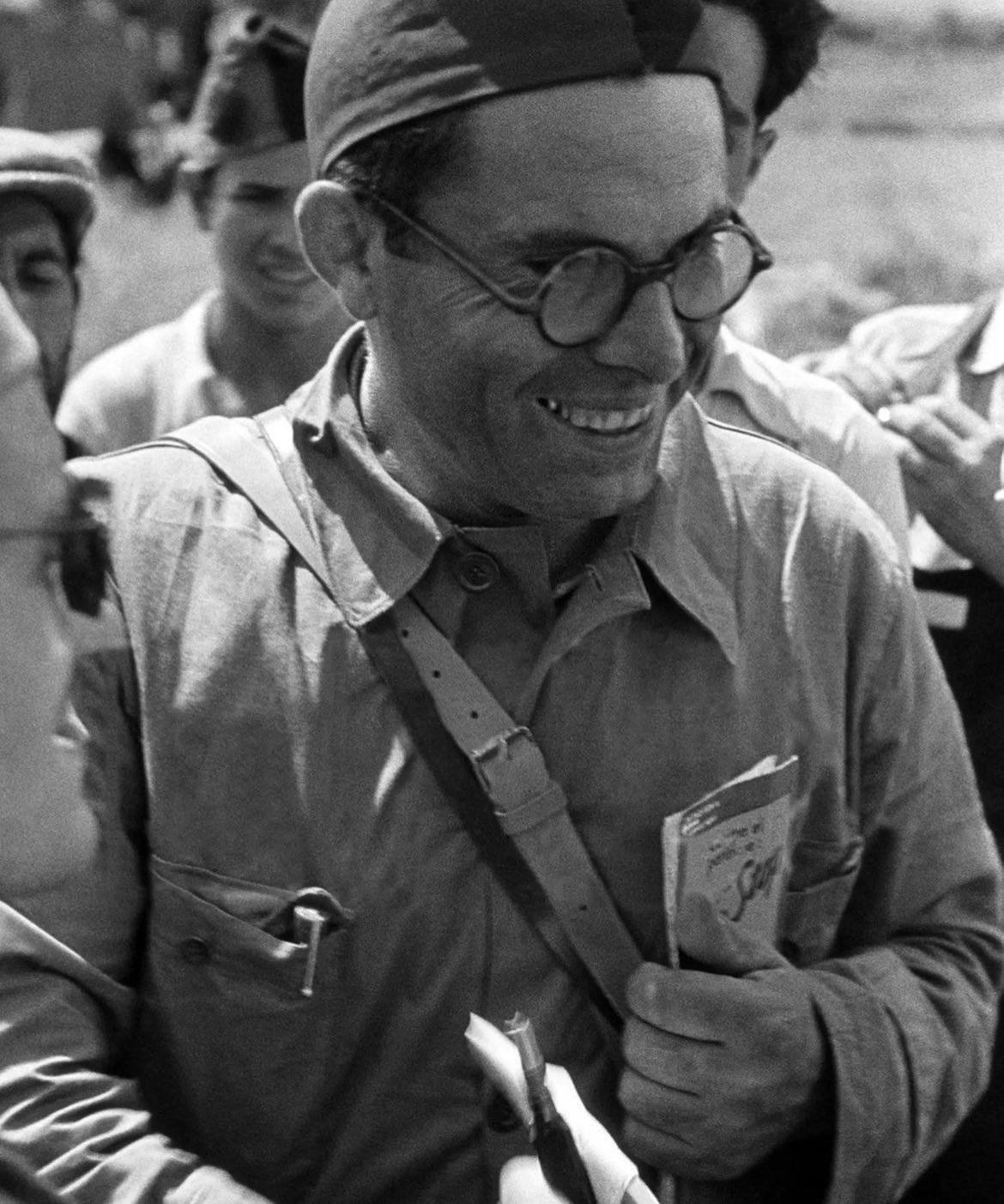Translated from the Spanish-language text in ‘Via Libre: Portavoz de la Confederación Nacional del Trabajo y de la Federación Anarquista Ibérica de Badalona’ November 7, 1936
To the Council of the Generalidad of Catalonia
The War Committee of the DURRUTI COLUMN, reflecting the feelings of the totality of the individuals enlisted in it, in light of the publication of the Decree on militarization of the militias, states the following:
The military-fascist provocation of July 19 gave rise to an authentic and indisputably popular movement which definitively condemned, among other things, hierarchical military organization and the Code of [Military] Justice referred to in article 2 of the aforementioned Decree.
This Column, formed spontaneously in the heat of the protest in the streets of Barcelona and swelled later by all those who have felt connected with our ideal, has unity in its structure and purposes, and its individuals discipline themselves as they strive to achieve their objective of defeating fascism. If discipline tends to seek greater performance in individuals, this Column can give good proof of its effectiveness: the work done at the front by our militiamen and the constant advance in our positions are our best indicator in favour of self-discipline.
The militiamen of this Column have confidence in themselves and in those who lead it by their explicit delegation, without reservation. Therefore they believe, and we identify with them, that the militarization Decree cannot improve our possibilities of struggle and will instead create suspicions, reservations and revulsions that have already pointed out and would further concretize a real state of disorganization.
The argument that the enemy is fighting “with large quantities of supplies” obviously finds no solution with the militarization of the militias.
In view of all the aforementioned, this Committee, echoing the clamour of protest raised in the Column in response to the aforementioned Decree, is required to not accept it.
Shedding light on this formal and concrete determination and considering that the struggle undertaken must not be hampered by this, we seek from the Council freedom of organization and ask for a precise response as soon as possible to put an end to the state of restlessness that has been created.
For the War Committee,
Durruti
Osera Front, November 1, 1936
Al Consejo de la Generalidad de Cataluña.
El Comité de Guerra de la COLUMNA DURRUTI, ante la publicación del Decreto de militarización de las milicias y recogiendo el sentir de la totalidad de los individuos enrolados en ella, expone lo siguiente:
La provocación militar-fascista del 19 de Julio dió origen a un movimiento auténtica e indiscutiblemente popular por el que se condenó definitivamente, entre otras cosas, la organización jerárquica militar y el Código de Justicia a que se refiere el artículo 2º del Decreto referido.
Esta Columna, formada espontáneamente al calor de esa protesta en las calles barcelonesas y engrosada posteriormente por todos los que se han sentido hermanados con nuestro ideal, tiene unidad en su conjunto y finalidades, y sus individuos se disciplinan a cuanto tienda a conseguir su objetivo de batir al fascismo. Si la disciplina tiende a buscar un mayor rendimiento en los individuos, esta Columna puede dar buena prueba de su efectividad: el trabajo realizado en el frente por nuestros milicianos y el avance constante de nuestras posiciones son nuestro exponente mejor en favor de la auto-disciplina.
Los milicianos de esta Columna tienen confianza en si mismos y en los que la dirigimos, por su expresa delegación, sin reservas. Por tanto creen, y nos identificamos con ellos, que el decreto de militarización no puede mejorar nuestras posibilidades de lucha, viniendo a crear en cambio suspicacias, reservas y repulsiones que ya han apuntado y concretarían un verdadero estado de desorganización.
La razón que se aduce de que el enemigo luche “aprovisionado de material en grandes proporciones” no tiene, evidentemente solución con la militarización de las milicias.
Por todo lo expuesto, este Comité, haciéndose eco del clamor de protesta levantado en la Columna por el Decreto referido, se ve precisado a no admitirlo.
Al dar cuenta de esta determinación formal y concreta y estimando que la lucha emprendida no debe entorpecerse por esto, recabamos de ese Consejo, libertad de organización y le rogamos una respuesta precisa que venga, a la mayor brevedad, a poner fin al estado de inquietud que se ha creado.
Por el Comité de Guerra,
Durruti
Frente de Osera, 1º de Noviembre de 1936
Also
The Tragic Week in Catalonia, from Freedom (1909)
Militians, Yes! But Soldiers, Never!, by various Spanish anarchist militias (1936)
The Durruti Column, by Carl Einstein (1936)
An Interview with Durruti about the Militarisation of the Militia (1936)
Self-Discipline in the Workers’ Militia, by Buenaventura Durruti (1936)
Fascism Should Not Be Discussed, But Destroyed, by Buenaventura Durruti (1936)
Call to Moroccan Proletarians, by Ahmed Ben Thami (1936)
Blood in Palestine, by Solidaridad Obrera (1936)
The Right of Peoples to Determine Themselves, by Solidaridad Obrera (1936)
What Can We Do?, by Camillo Berneri (1936)
Cowardly Policy Brought Moors to Spain, from Spanish Revolution (1936)
A Day Mournful and Overcast…, by an “uncontrollable” from the Iron Column (1937)
Why Moors Help Franco, by George Padmore (1938)
From the Militias to Militarization, by Vernon Richards (1956)
Collectives in the Spanish Revolution, by Gaston Leval (1975)
Stalin’s Shadow over Spain, by Abel Paz (1996)
War or Revolution?, edited by Stuart Christie (1998)
The Problem of Militarisation, edited by Stuart Christie (2003)
Carrying the War into Africa?: Anarchism, Morocco, and the Spanish Civil War, by Danny Evans (2020)
Anarchism and Revolutionary Defeatism, by K. C. Sinclair (2025)
“Dissolve the army and immediately withdraw from Morocco.”
Workers at the CNT-FAI rally in Barcelona on May Day (1931)

